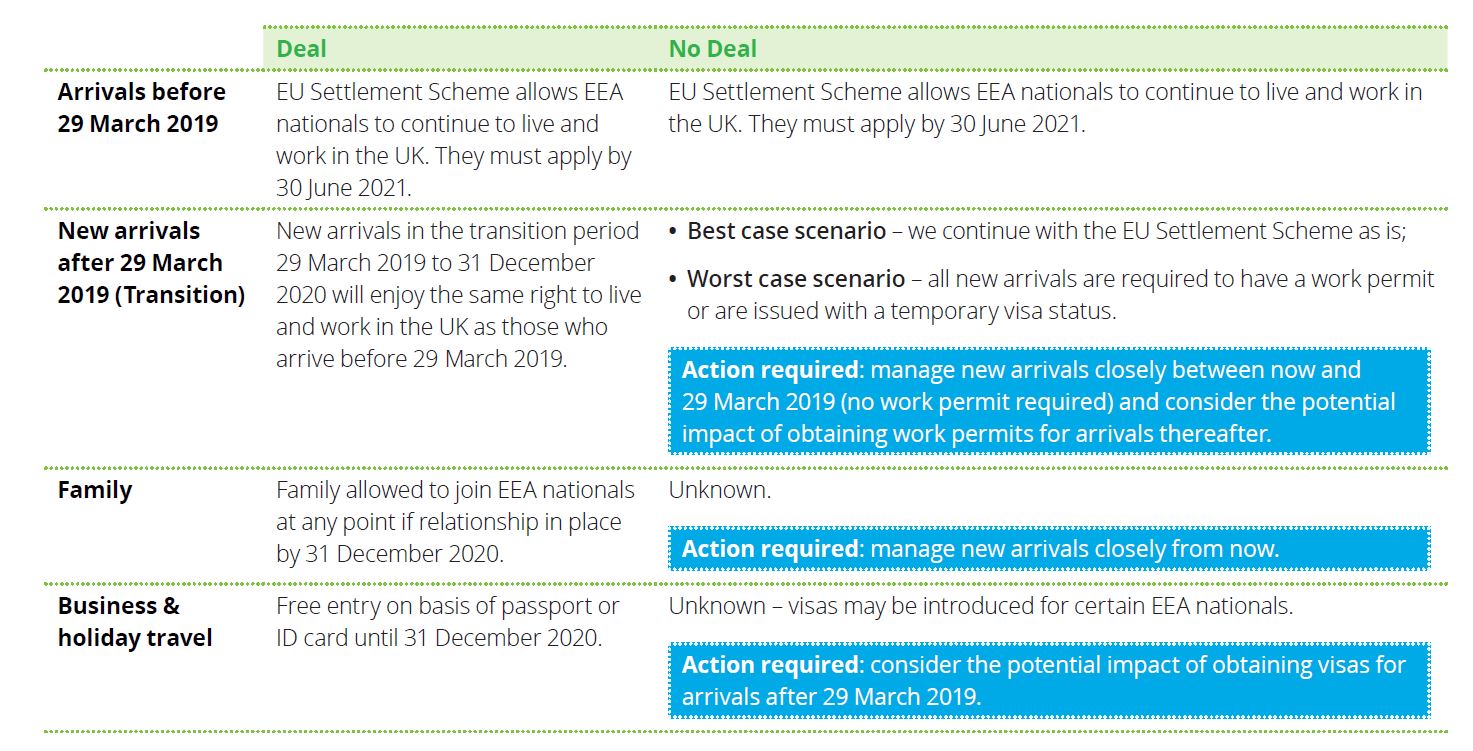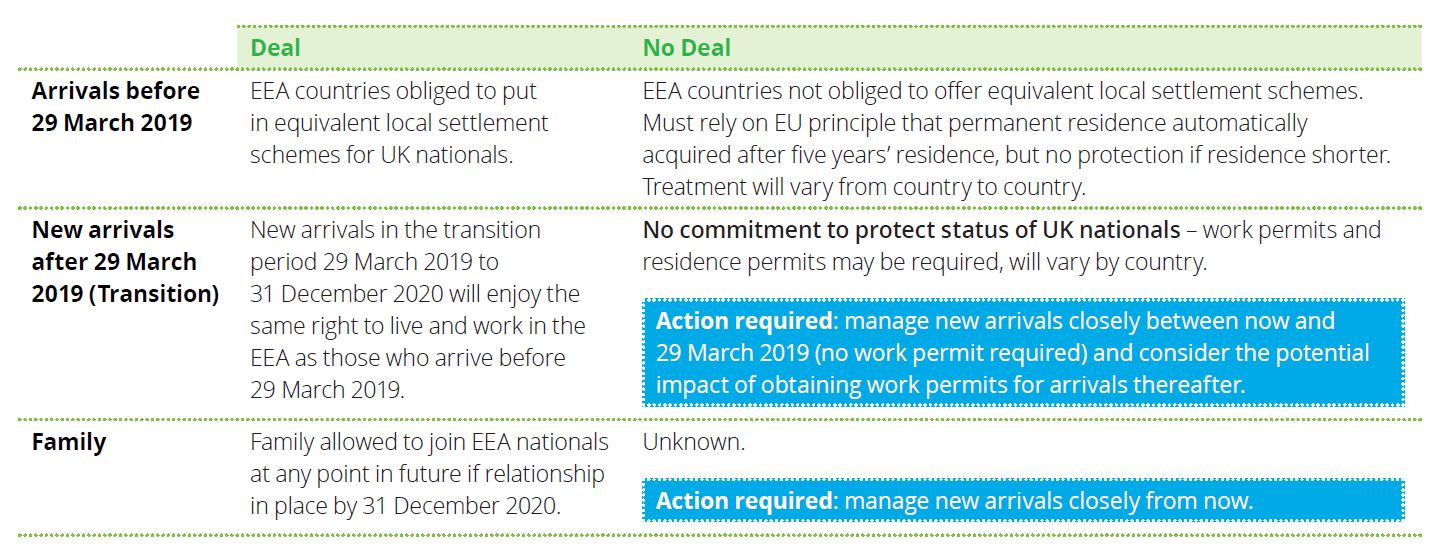On the 14th November 2018, Theresa May announced the details of the draft EU Withdrawal Agreement in the UK Parliament. She is facing strong challenges as she seeks to get the “deal” passed through Parliament in the coming weeks. As the possibility of a no deal outcome increases, now is a good time for HR and Mobility leaders to remind themselves of the immigration consequences of the deal versus no deal for all EEA nationals who live and work in the UK, as well as UK nationals who live and work elsewhere in the EEA. No deal could become a reality on 30 March 2019.
Certainty with a deal
- EU Settlement Scheme: the UK has unilaterally agreed to provide “settled status” for EEA nationals who move to live in the UK by 29 March 2019, i.e. EEA nationals already in the UK know that they can stay in the UK.
- New arrivals after 29 March 2019: There will be a transition period, from 30 March 2019 to 31 December 2020, so that any EEA nationals arriving in this period can essentially be treated the same as EEA nationals already in the UK before 29 March 2019, i.e. new arrivals in the transition period know that they will be able to stay in the UK.
- Registration timeframe: the registration timeframe is known – qualifying EEA nationals need to register for the “EU Settlement Scheme” by 30 June 2021.
- Special provisions: are in place for family members to join EEA nationals in the UK or for returning residents who have spent some time away from the UK.
- Reciprocal provisions: for UK nationals living in other EEA countries, those countries are obliged to put in local settlement schemes to allow UK nationals to continue living and working there.
Uncertainty with no deal
- New arrivals after 29 March 2019: the UK may not have a transition period for arrivals after 29 March 2019 so a new arrival from the EEA would then be immediately subject to immigration controls. There are a number of options that the Government may decide to implement, which we have narrowed down to the 3 most likely scenarios:
- We may maintain some form of transition period and simply continue with the settlement scheme that is already in UK law;
- We may go straight to a new immigration system and require every worker arriving to have a work permit in place. This is very unlikely as it would require a change to the law, and we are simply not ready;
- We may implement a temporary status which is valid until we implement the new immigration system, at which point the temporary status would need to be converted under the new system. This would also require a change to UK Immigration Rules.
- Special provisions: the UK could be soft or tough on joining famil y members or returning residents.
- Reciprocal provisions: in a no deal scenario, there is no obligation on other EEA countries to put in local settlement schemes so there may be uncertainty for UK nationals overseas and the provisions will vary from country to country.
Irish citizens
Whether there is a deal or no deal, Irish citizens are secure – they can continue to travel, live and work in the UK visa free, on the basis of their Irish passport.
See the table below for a quick summary of the main categories (this assumes there is no extension to the transition period):
EEA nationals into the UK

UK nationals into the EEA

Other considerations
- Communications: consider helping your existing workforce and potential candidates understand the implications for them and/or their family of the immigration requirements post 29 March 2019. This could help you attract and retain your workforce.
- Border Arrangements: Greater level of border checks will be needed as free movement ends and new visa or documents could be introduced for new arrivals with immediate effect As a practical point, even if you fall under the old free movement rules, how can you travel if you cannot prove your status on re-entry?
- Right to Work Arrangements: Employers will have the same obligation to ensure “Right to Work” post Brexit, but may find themselves with the task of differentiating EEA nationals’ legal status depending on when they did and did not enter the UK, without the support of a border stamp, visa or other document. In a no deal scenario, will you be ready to check on the right to work status of your EEA nationals from as early as 30 March 2019?
Deloitte’s recommendation
If the UK Government secures a deal with Parliament and then the EU in the coming weeks, we can be confident of many of the immigration consequences of Brexit; the EU Settlement Scheme will protect EEA nationals and their family members in the UK, EEA Member States will have an obligation to make equivalent arrangements, and we will have a 21 month transition period to bring about changes in travel and working arrangements. If the Brexit deal does not go through, and an alternative is not possible in the time frame, then there are a number of significant impacts. We recommend at this stage that you plan for every eventuality, including a “no deal” Brexit. We are happy to provide support to you as you think through your workforce communications strategy and right to work check arrangements.